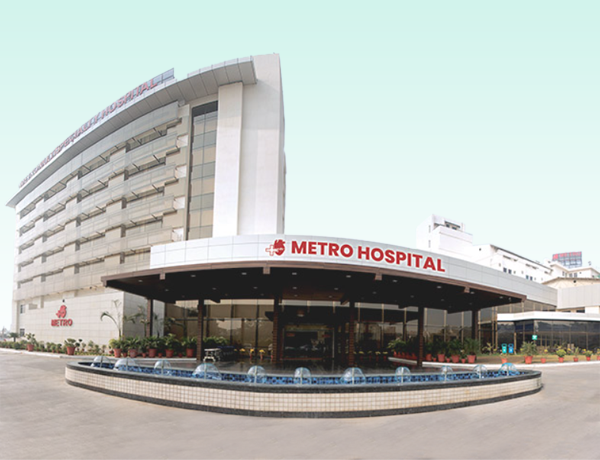Paediatric Nephrology
Paediatric nephrology is a specialized field of medicine that focuses on the diagnosis, treatment, and management of kidney disorders in children. These disorders may include congenital kidney abnormalities, urinary tract infections, kidney stones, nephrotic syndrome, and other conditions that affect the kidneys and urinary system in children. Paediatric nephrologists are healthcare professionals who have expertise in the unique needs of children with kidney disorders.

When to See a Specialist
It is recommended to see a paediatric nephrologist under the following circumstances:
- Persistent or recurring urinary tract infections in children.
- Blood in the urine or abnormal urine color.
- Swelling or edema that does not resolve.
- High blood pressure in children.
- Poor growth or development.
- Family history of kidney disorders.
- Abnormal kidney function or abnormalities detected in routine blood or urine tests.
Types of Treatment of Paediatric Nephrology
The treatment options for pediatric nephrology disorders depend on the specific condition and its severity. Some common treatment approaches include:
- Medications: Prescribing medications to manage symptoms, control blood pressure, prevent infection, or treat underlying conditions affecting the kidneys.
- Dietary modifications: Recommending specific dietary changes, such as reducing sodium intake or adjusting fluid consumption, to support kidney health.
- Fluid and electrolyte management: Monitoring and regulating fluid and electrolyte balance to prevent dehydration or electrolyte imbalances.
- Urinary tract interventions: Performing procedures or surgeries to address structural abnormalities, such as kidney stones or ureteral obstructions.
- Dialysis: In cases of severe kidney dysfunction, dialysis may be necessary to remove waste products and excess fluids from the body artificially.
- Kidney transplantation: For children with end-stage kidney disease, kidney transplantation may be an option to replace the failed kidney with a healthy one from a donor.
Road to Recovery
The road to recovery for paediatric nephrology conditions depends on the specific disorder and its treatment. It often involves:
- Regular follow-up visits: Visiting the paediatric nephrologist for monitoring kidney function, adjusting medications, and evaluating the child’s overall health.
- Adherence to treatment plan: Ensuring that the child takes prescribed medications as directed, follows dietary recommendations, and attends necessary medical appointments.
- Lifestyle modifications: Encouraging a healthy lifestyle with regular exercise, proper hydration, and a balanced diet to support overall well-being.
- Education and support: Providing education and support to the child and their family regarding the condition, treatment options, and self-care practices.
- Psychological support: Addressing any emotional or psychological challenges the child may face and providing necessary support or counseling.
Risk Management
To manage the risks associated with paediatric nephrology conditions, the following measures may be recommended:
- Regular check-ups: Ensuring the child attends scheduled medical appointments for monitoring kidney function and overall health.
- Medication management: Adhering to medication schedules and discussing any concerns or potential side effects with the healthcare provider.
- Healthy lifestyle: Encouraging a healthy lifestyle with a balanced diet, regular exercise, adequate hydration, and stress management techniques.
- Preventive measures: Taking steps to prevent urinary tract infections, such as practicing proper hygiene and timely treatment of any infections.
- Education and awareness: Ensuring that the child and their caregivers are well-informed about the condition, its management, and potential risks.
- Emergency preparedness: Creating an emergency plan and ensuring the child’s caregivers are aware of what to do in case of sudden complications or worsening symptoms.
Frequently Asked Questions
1. Can children outgrow kidney problems?
Some kidney conditions in children, such as certain congenital abnormalities, may improve or resolve with age. However, it is important to consult with a paediatric nephrologist for accurate diagnosis and appropriate management.
2. Can paediatric kidney diseases be hereditary?
Some kidney conditions can have a genetic component, which means they may run in families. A thorough evaluation by a paediatric nephrologist can help determine if there is a hereditary component and provide appropriate genetic counseling if needed.
3. Are all kidney problems in children serious?
Kidney problems in children can range from mild to severe. Some conditions may require minimal intervention or resolve spontaneously, while others may require ongoing management or treatment. A proper diagnosis and assessment by a pediatric nephrologist can help determine the severity and appropriate course of action.
4. Can pediatric kidney conditions be prevented?
While it is not always possible to prevent all kidney conditions, adopting a healthy lifestyle, practicing good hygiene, staying hydrated, and seeking prompt treatment for infections can help reduce the risk of certain kidney problems in children.
5. How long does treatment for pediatric nephrology conditions last?
The duration of treatment for pediatric nephrology conditions varies depending on the specific condition, its severity, and the child’s response to treatment. Some conditions may require short-term interventions, while others may require long-term management. The pediatric nephrologist will provide a personalized treatment plan and discuss the expected duration of treatment.
Treatians As The Best Choice
Treatians understand that seeking medical treatment abroad can be a daunting experience for patients and their families. That’s why the company offers end-to-end support to its clients, from the initial consultation to post-treatment care. The company provides personalized treatment plans that are tailored to meet the individual needs of each patient, and its team of dedicated professionals is always on hand to provide guidance and support throughout the entire process. Contact us at +91-7982312582, drop your email [email protected]
- Trauma & intensive care
- Aged Care
- Community Services
- Diagnosis & Investigation
- Medical & Surgical
- Mental Health
- Rehabitation
- Specialised Support Service
Service Recipient Says

Oxmox advised her not to do so, because there were thousands of bad Commas, wild Question Marks and devious.
Kolis Muller NY Citizen
Oxmox advised her not to do so, because there were thousands of bad Commas, wild Question Marks and devious.
Kolis Muller NY Citizen

























Oxmox advised her not to do so, because there were thousands of bad Commas, wild Question Marks and devious.
Kolis Muller NY Citizen